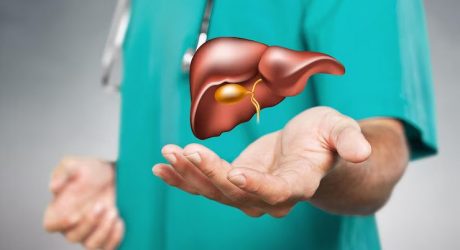Due to cultural expectations and assumptions about male virility and sexuality, talking about ED is often avoided. Consequently, many men endure ED in silence because they are unaware that it is a widespread problem that can be effectively treated by behavioural modifications, psychotherapy, and medication.
ED is a medical condition characterised by the inability to achieve or maintain an erection sufficient for satisfactory sexual performance. Beyond the physical implications, ED can profoundly affect a man’s mental health, self-esteem, and relationships, further underlining the importance of addressing this common men’s health issue. Despite these challenges, strides are being made to bring ED into the open. Increasingly, healthcare providers and public health campaigns are encouraging open conversations about men’s sexual health, urging men to seek help and offering effective treatment options.
This article aims to shed light on the often misunderstood issue of erectile dysfunction, breaking down barriers to discussion and providing insights into its causes, implications, and potential solutions. Because when it comes to ED, knowledge and understanding are the first steps to seeking and finding help.
Risk Factors For Developing Erectile Dysfunction
Several factors have been linked to erectile dysfunction’s onset. By being aware of these causes, men can take preventative measures to keep their erections strong. Age is a major element in the risk. Men’s ED rates tend to rise with age. Several causes contribute to this, including diminished blood flow to the penis, shifts in hormone levels, and underlying health problems.
Another risk factor is obesity. Due to its effects on hormones, decreased blood flow, and increased risk of diseases, including diabetes and heart disease, obesity is a known contributor to erectile dysfunction. Smoking is also a significant risk factor for developing ED. The chemicals in tobacco can damage blood vessels and restrict blood flow, leading to erectile difficulties. Additionally, certain medications, including those used to treat high blood pressure and depression, have adverse effects that can lead to erectile dysfunction.
Reducing the likelihood of getting erectile dysfunction can be accomplished by taking measures to address these risk factors, such as keeping a healthy weight, stopping smoking, and exploring prescription choices with your GP.
The Impact Of Erectile Dysfunction On Men’s Mental Health

Erectile dysfunction not only has physical implications but can also have a profound impact on men’s mental health. The inability to achieve or maintain an erection can lead to feelings of frustration, embarrassment, and shame. It can significantly impact self-esteem and body image, causing men to feel inadequate or less masculine.
In addition to these emotional challenges, ED can also strain relationships. Intimate partners may feel rejected or question their desirability, leading to tension and a loss of intimacy. Communication breakdowns and a sense of distance can occur, further exacerbating the emotional toll of ED.
It is crucial to recognise and address the mental health aspects of erectile dysfunction. Seeking support from a healthcare professional or therapist can help individuals navigate the emotional challenges associated with ED. Open and honest communication with intimate partners is also essential in maintaining a healthy and supportive relationship.
Medical Treatments For Erectile Dysfunction
Fortunately, there are various medical treatments available for erectile dysfunction. The most well-known and widely used are oral medications such as Sildenafil or Tadalafil for erectile dysfunction. These medications work by increasing blood flow to the penis, facilitating the achievement and maintenance of an erection. They are generally safe and effective when used as prescribed, but it is essential to consult a healthcare professional before starting any medication.
In addition to medication, therapy can play a crucial role in treating ED. It is possible to address the underlying mental issues that are contributing to ED through the use of psychological techniques. Some examples of these approaches include cognitive behavioural therapy (CBT) and sex therapy. Improving communication skills and building healthy coping mechanisms are the primary focuses of these types of therapy. Additionally, negative thought patterns are identified and challenged. The combination of medication and therapy can provide comprehensive treatment for ED, addressing both the physical and psychological aspects of the condition.
Lifestyle Changes To Improve Erectile Function
In addition to medical treatments, making certain lifestyle changes can also improve erectile function. One of the most critical lifestyle factors is maintaining a healthy weight. Obesity has been linked to ED, as excess weight can contribute to hormonal imbalances and restrict blood flow. Engaging in regular physical activity and following a balanced diet can help manage weight and promote overall cardiovascular health, which is essential for erectile function.
Another lifestyle change that can positively impact erectile function is quitting smoking. Smoking damages blood vessels and restricts blood flow, making it more difficult to achieve and maintain an erection. Quitting smoking can improve circulation and have a significant positive impact on erectile health.
Reducing stress and managing psychological factors also play a role in improving erectile function. High levels of stress and anxiety can interfere with sexual performance. Engaging in stress-reducing activities such as exercise, meditation, or therapy can help alleviate tension and improve overall well-being.
Dispelling ED Myths
There are several myths and misconceptions surrounding erectile dysfunction that contribute to its under-discussion and stigma. It is essential to dispel these myths to create a more open and informed dialogue around ED.
One common myth is that ED is a natural part of ageing and cannot be treated. While it is true that the prevalence of ED increases with age, it is not an inevitable consequence of getting older. With the right interventions, including medical treatments, lifestyle changes, and emotional support, many men can effectively manage and treat their ED.
Another myth is that ED is solely a psychological issue. While psychological factors can contribute to ED, it is often a multifactorial condition with physical, psychological, and lifestyle components. Understanding the potential underlying causes of ED can help individuals seek appropriate treatment and support.
Support For Couples Dealing With Erectile Dysfunction
Couples dealing with erectile dysfunction may face unique challenges in their relationship. The impact of ED on intimacy and self-esteem can strain communication and emotional connection. However, it is crucial for couples to remember that ED is a medical condition and not a reflection of their worth or desirability.
Open and honest communication is key for couples facing ED. Discussing feelings, fears, and expectations can help alleviate tension and foster understanding. Seeking professional support, such as couples therapy or sex therapy, can provide additional guidance and strategies for navigating the impact of ED on the relationship.
It is also important for intimate partners to be patient and supportive. Encouraging healthy lifestyle changes, accompanying each other to medical appointments, and exploring alternative forms of intimacy can help maintain a strong emotional connection and foster a sense of togetherness.
Final Thoughts
Erectile dysfunction is a common men’s health issue that deserves more attention and understanding. By breaking down barriers to discussion, dispelling myths, and providing information on the causes, implications, and potential solutions of ED, we can empower men to seek help and support. Whether through medical treatments, lifestyle changes, or emotional support, there are options available for managing and treating erectile dysfunction. Remember, knowledge and understanding are the first steps towards addressing this common but often overlooked men’s health issue.
Read Also:




























